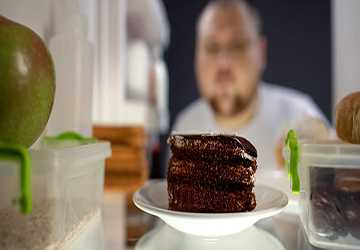Beating Emotional Eating and Other Weight Loss Roadblocks
Go for food, intentionally or not, for your comfort. You may need to intensify your efforts to stay in shape by eating at home, and it often encourages overeating, especially high-fat, sugary, and unhealthy foods.
Do you use food to calm or relieve stress? This comprehensive article provides the following:
lInvaluable advice on how to cope with stress.
lOvercoming cravings.
lDiscover healthier ways to nurture your emotions.
Learn practical strategies to reduce stress and find more fulfillment without relying on food as a coping mechanism.

What exactly is emotional eating?
It's about satisfying our hunger; sometimes, we turn to food to relax, relieve stress, and comfort ourselves. We've all been there, haven't we? In moments like these, we reach for sugary desserts, greasy fast food, or other sugary treats that immediately make us feel good.
Whether distraught, exhausted, or just plain bored, we all crave comfort in foods that aren't necessarily good for us. Emotional eating occurs when we satisfy our emotional needs rather than our true hunger. Unfortunately, focusing on meals as a way to solve problems does not address the underlying challenges we face.
Identify Emotional Eating Patterns
Do you think it has something to do with emotional eating? Pay attention to these indicators, which may coincide with your eating habits and thought process in this situation:
• Do you rely on food to lift your moods, such as to relieve sadness, anger, tiredness, anxiety, and similar feelings?
• Do you balance with food?
• Does eating make you feel safe?
• Do you think food is a trustworthy companion?
• Do you struggle to control your urges when your favorite food is within reach?
Understanding the Emotional Eating Cycle
Food can be used as a reward, celebration, or comfort, and eating can make us feel better, at least temporarily. A delicious meal or dessert can evoke a momentary sense of relief when caught up in an emotion. But here's the thing: the feeling that made us eat in the first place doesn't magically go away, and they persist and sometimes intensify.
We often feel great regret when the temporary comfort wears off. Those empty calories we eat fail to satisfy our emotional needs and make us feel worse than before. We blame ourselves and view our eating habits as a personal failure and a lack of self-control.
Overcome Emotional Eating and Overcome Weight Loss Barriers
We all know those moments when negativity takes hold, and our first instinct is to reach for food. But the good news is you can regain control and break free from emotional eating. Here are some strategies to consider:
Keep a food diary:
Keeping track of what you eat can be a valuable resource. Keep a journal of what you eat, how much you eat, when, and most importantly, how you feel. You can begin to explore the emotional reasons behind your eating behavior and find alternative ways to cope by recognizing patterns.
Face the pressure:
Stress often triggers emotional eating. Explore your favorite stress management methods, such as B. Meditate, do yoga, take deep breaths, or pursue a relaxing hobby. These strategies can help minimize emotional tension and relieve stress.
Recognize physical hunger:
If it's been a while since you last ate and your stomach isn't growling, it could be a sign that your body doesn't need food. Take a moment to see if the appetite goes away naturally.

Stay busy:
Instead of turning to food when you're not very hungry, look for activities that keep you engaged and motivated. Go for a nature walk, watch your favorite movie or TV show, spend time with your beloved pet, lose yourself in a good book, explore exciting topics online, or meet and chat with friends. These distractions can help take your mind off emotional eating.
Remove temptation:
Make your environment work in your favor by eliminating or minimizing tempting comfort foods. If you eat certain foods when you're feeling down or angry, try not to keep them within easy reach of your home. Put off going to the grocery store until you can gain more control and establish healthier emotional boundaries.
Avoid deprivation:
Excessive calorie restriction or a strict, monotonous diet can leave you feeling deprived and more likely to give in to cravings. Instead, seek a balanced approach. Eat nutritious food and have a treat every once in a while.
Make nutritious snacks:
If you feel hungry between meals, have a snack that nourishes your body. Fresh fruit, low-fat vegetables, a handful of nuts, or butter-free popcorn are all good choices, and these snacks provide vital nutrients while keeping you full.
Acknowledge your feelings:
We've all had times when emotional eating got the upper hand. The good news is that you can turn these failures into essential lessons and opportunities for personal improvement. Instead of punishing yourself, be kind to yourself and focus on the positive changes you make. Compliment yourself for your efforts to improve your health. Tomorrow is a new day, so let go of all the guilt and frustration. Take a moment to think about an emotional food event and what you might get out of it.
Diploma
Eating is a fundamental part of our daily lives; we need it to make a living. On the other hand, most people think of food as more than just a source of energy and nutrition. Learn how emotional eating can hinder your weight loss efforts and how to take control of your eating habits in the article above.